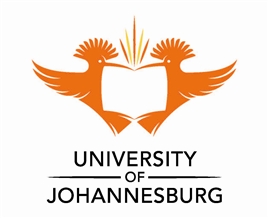University of Johannesburg
PASCAL AFRICA
PASCAL Africa is situated at the University of Johannesburg (UJ) within its Centre for Local Economic Development (CENLED) in its School of Economics.
The University of Johannesburg
The University of Johannesburg (UJ) is a vibrant, multicultural and dynamic university which shares the pace and energy of the cosmopolitan city of Johannesburg, the city whose name it carries. The university maintains its role in actualising the potential through higher education. With a student population of over 50 000 students, of which more than 3000 are international students from 80 countries making UJ one of the largest contact universities in South Africa. The vision of the UJ is to be “an international University of choice, anchored in Africa, dynamically shaping the future”. The mission can be described as follows: “inspiring its community to transform and serve humanity through innovation and the collaborative pursuit of knowledge”.
The School of Economics (SOE) of the University of Johannesburg
The core activity of the School of Economics is to train economists in various fields of Economics (Local Economic Development, Financial Engineering, Industrial Economics and Trade Economics) so that they become the next generation leaders in the field of Economics and valuable assets for any organization. The School of Economics (SOE) consists out of six distinct clusters namely:
- Development Economics
- Financial Engineering
- Local Economic Development (which falls under CENLED)
- Industrial Policy (which includes the Institute for Economic Development and Planning (IDEP) program)
- Research
- The Public and Environment Economics Research Center
- Center for Competition Regulation and Economic Development
- Mcom by Research and PhD
UJ CENLED
CENLED plays a role in the development of new career path for economic developers. The success of a community depends upon its ability to adapt to the dynamic local, national and international market economy. Strategically planned sustainable Local Economic Development (SLED) is increasingly used by communities to strengthen the local economic capacity of an area, improve the investment climate, and increase the productivity and competitiveness of local businesses, entrepreneurs and workers.
The ability of communities to improve their quality of life, create new economic opportunities and fight poverty depends upon them being able to understand the processes of SLED, and act strategically in the changing and increasingly competitive market economy.
CENLED has positioned itself nationally, and members of CENLED span a number of key Universities across South Africa. These include the University of Johannesburg, University of Zululand, the University of the Western Cape, Tshwane University of Technology, amongst others.
Directorate of PASCAL Africa
PASCAL Director: Professor Marius Venter
Prof. Marius Venter is the founder and director of the Centre for Local Economic Development (CENLED) based at the University of Johannesburg since 2008. CENLED’s focal areas are economic development, in particular through entrepreneurship in local communities across South Africa. Prof Venter served as the deputy chairperson of the Small Business Development Agency (SEDA) for 9 years. He has been the driving force in establishing a network of academics and practitioners in these fields in all South African universities, leading to the establishment of the professional body, the Economic Development Council of South Africa (EDCSA), which he chairs. Prof Venter has more than 30 years’ hands-on experience in small business development and entrepreneurial activities, mainly in the local government sphere. He serves as the Director: PASCAL Observatory (Africa), a global alliance that works in collaboration with city and regional and leaders to balance economic growth, social inclusion, and environmental sustainability. He is a visiting professor at the Philippines Normal University.
PASCAL Co-Director: Professor Peter Baur
Baur is an Associate Professor at the School of Economics in the University of Johannesburg. He holds a Doctoral Degree in Economics from the same University. He has lectured internationally and across South Africa for many different universities. His community engagement has spanned both the private and public sector. His field of research includes cultural, financial, behavioural and development economics. He is a long serving member of the Centre for local Economic Development (CENLED). He sat on an advisory board for the Department of Cooperative Governance and Traditional Affairs. He sits on the research board for the Gauteng Department of Economic Development. He acts as an economic advisor for members of city council and is the co-director for PASCAL Africa. He has published in a number of international journals and has often featured in the both the local and international media, where he is often called upon for commentary and economic analysis. He heads the International Research Unit in Arts and Culture at the School of Economics, a research division for the Arts and Cultural Trust, which is an international cross disciplinary inter university research unit which focuses on the cultural entrepreneurship. He publishes quite extensively in the field of financial economics and cultural entrepreneurship within the arts and cultural sector.
PASCAL Co-Director: Dr Marinda Pretorius
Marinda Pretorius is a senior lecturer in the School of Economics at the University of Johannesburg and a researcher in sovereign credit ratings, subjective well-being, migration and exchange rate forecasting, with a keen interest in African economies. She also coordinates the Masters in Local Economic Development (LED) at the School of Economics. She is frequently involved in projects that investigate and analyse the subjective well-being of labourers (day labourers, car guards) employed in the informal market in South Africa.
Key Projects within PASCAL Africa.
The African Centre of PASCAL recognises the role of economic development within the African context. Global shifts in terms of international trade, political relationships, global warming, forced migration, and the changing nature and role of technology is forcing new attitudes towards key issues of culture and entrepreneurship and cultural development within the African context.
Key project highlights underway in 2022/2023 include:
- The cultural sector contribution to South Africa by exploring the impact of the cultural sector via tourism into the Cradle of Humankind World Heritage Site and Dinokeng Project. This project is a key development of key cultural sectors of the South African economy. The Constitution of the Republic of South Africa empowers society to live within an environment that is not harmful to the health and wellbeing of South Africans and all those who live in South Africa. However, it was observed that, over the years, the cultural sector faced numerous challenges due to its dependence on both endogenous and exogenous factors. Endogenous factors influencing the South African arts and culture sector include, but is not limited to, the many socio-economic challenges experienced by individuals within the economy; such as low levels of economic growth, high levels of poverty, high and persistent levels of income inequality, unemployment, inflation and persistent skill gaps. Exogenous factors influencing the South African arts and culture sector include the impact of COVID-19 on local and international trade, tourism, and investment. The impact of Ukraine on the cost and safety of travel has shaped the nature of foreign visitors into South Africa. The environmental and cultural sector faced various challenges regarding business sustainability amid the exogenous and endogenous factors impacting key development areas, including the Cradle of Humankind World Heritage Site and Dinokeng Project. The Cradle of Humankind World Heritage Site and Dinokeng Project support entrepreneurship and leadership through various initiatives across the disciplines of tourism and arts and culture.
- The Arts and Culture Research Unit (ACRU) through the Arts and Culture Trust (ACT) developed a Colloquium that focused on bringing together a number of stakeholders and practitioners within the creative industries which to develop a conceptual framework to better understand the state of arts and culture within South Africa. There is growing interest in the ‘creative society’ and the role of creativity through social innovation on economic and social development. The aim of this colloquium was to connect the three critical sectors of society, namely, the arts and cultural sector, the Science and Technology sector and the Economics and Business sector in such a way that the importance of ‘recognising’ the power of innovation can be truly incorporated into Research and Development. Unlike other sectors, there is no active equivalent understanding of how innovation through art and culture may impact the field of science, business and technology so as to drive growth within an economy where incredible socioeconomic challenges exist. The colloquium focuses on bridging the relationship between faculties and disciplines where cultural values are examined on an institutional level. The focus of this colloquium examined the role of innovation through ‘institutions’ on ‘cultural dynamics’.
Research Projects
Research generated within universities especially within the developing countries have a crucial role to play in developing distinguished and active academic systems, by making it possible for these developing countries to contribute towards the global knowledge within society through knowledge development in key issues of economic development, social cohesion, political transformation and environmental sustainability. PASCAL Africa recognises the importance of such development in research and maintains a high degree of professional and academic integrity within this process.
 Printer-friendly version
Printer-friendly version- 19 reads






